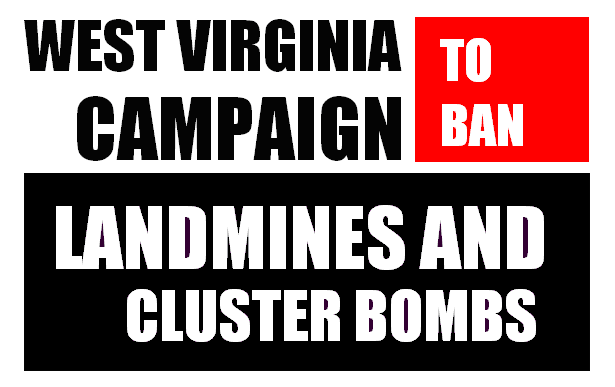Nobel Peace Prize-Winning Campaign Urges Stronger Commitment


Share post
PRESS RELEASE
(Geneva, 28 February 2025) The international treaty prohibiting antipersonnel landmines faces unprecedented threats, the International Campaign to Ban Landmines (ICBL), 1997 Nobel Peace Co-Laureate, warns on the 26th anniversary of the Mine Ban Treaty’s entry into force on 1 March 1999.
“Over the past 25 years, the Mine Ban Treaty has garnered widespread international support and made a lasting positive impact, protecting people worldwide from the daily horror of landmines,” said Tamar Gabelnick, ICBL Director. “The world is, simply put, a much safer place because of the Mine Ban Treaty. Now is the time to defend it against any backsliding, especially in these times of increased insecurity.”
The Mine Ban Treaty’s total ban on antipersonnel landmines has saved countless lives as country after country eliminated these indiscriminate and inhumane weapons from their arsenals. The treaty’s positive obligations have provided crucial support to survivors and facilitated extensive demining efforts, removing the daily threat of stepping on a landmine in communities from Angola to Zimbabwe.
The Mine Ban Treaty has directly contributed to a massive drop in the production of antipersonnel mines, down from more than 55 countries in 1999 to a dozen today. The treaty’s positive impact can be seen in the destruction of more than 55 million antipersonnel mines from the stockpiles of countries that joined it.
However, recent developments now place these enormous humanitarian achievements at serious risk. Russia’s brutal war against Ukraine and extensive use of antipersonnel landmines in the country have created one of the world’s largest contamination crises and have prompted a small number of states bordering Russia to contemplate leaving the Mine Ban Treaty, a previously unthinkable regression on norms to protect civilians in armed conflict. In addition, in late 2024, the US government authorized two transfers of antipersonnel landmines to Ukraine, the first time it has exported AP mines since 1992. And the ongoing halt in U.S. foreign aid is severely undermining the international effort to safely clear land, provide risk education, and support survivors.
All European Union states and all but one NATO members are part of the Mine Ban Treaty, so if a member of either body were to withdraw from the Mine Ban Treaty, it would create internal division on an important foreign and security policy matter. NATO members must also consider their allies’ stance on specific weapons when planning for any anticipated joint military operation.
At the same time, the halt in U.S. funding jeopardizes decades of progress in demining, risk education, and survivor assistance programs in over 30 affected countries, putting countless lives at risk. The US government provides around 40% of the global contributions to mine clearance, according to the Landmine Monitor 2024report. Waivers are now being granted to a small number of demining programs pending the end of the US policy review, but it is not clear if those will translate into approvals after the 90-day period ends, and the majority of these programs’ life-saving work is still on hold.
“Mine-affected communities in countries from Cambodia to Ukraine have benefitted enormously from US demining support, enabling farmers to till much-needed plots, refugees to return home, and families to walk to schools and markets in safety,” said Ms. Alma Taslidzan, chair of the ICBL Governance Board. “We urge the United States to reinstate vital mine action funding and all countries to maintain their commitment to the Mine Ban Treaty, as these decisions directly protect lives and uphold international humanitarian law.”
Antipersonnel mines were banned under the Mine Ban Treaty because of their inherently indiscriminate and inhumane nature. These weapons cannot distinguish between combatants and civilians and remain lethal for decades, causing long-term human suffering and economic devastation. Military experts have long determined that the weapon’s devastating impact on innocent civilians far outweighs any marginal and limited military utility they may have. This fact remains as true today as it was when the treaty was negotiated in the 1990s.
BACKGROUND
The International Campaign to Ban Landmines (ICBL) is a global civil society coalition of hundreds of organizations working for a world without landmines. In 1997, the ICBL was awarded the Nobel Peace Prize together with its founding coordinator Jody Williams. The campaign includes national and international non-governmental organizations (NGOs) across many disciplines including demining, human rights, development, refugee issues, and medical and humanitarian relief.
Useful Links
www.icblcmc.org/about-icbl
Landmine Monitor 2024 Report
Finland’s Support for Mine Action Programs
Landmine Monitor Backgrounder on US Landmine Transfers to Ukraine
Improvised Mines: The Impact 2019–2023
The Impact of Mines/ERW on Children
Contact Details
Charles Bechara, Media & Communications Manager
International Campaign to Ban Landmines (ICBL)
Email: charles@icblcmc.org
Tel. +41 78 323 51 44
Tamar Gabelnick , Director
International Campaign to Ban Landmines (ICBL)
Email: tamar@icblcmc.org
Tel.
Alma Taslidzan, ICBL Governance Board Chair
International Campaign to Ban Landmines (ICBL)
Email: a.taslidzan@hi.org
Tel. : +32 484 82 82 93
